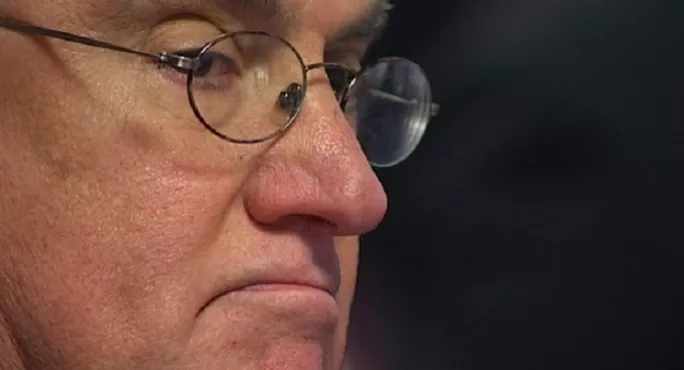- Home
- Leadership
- Tips & Techniques
- 4 tips for newbie headteacher Sir Michael Wilshaw
4 tips for newbie headteacher Sir Michael Wilshaw

I find it both alarming and reassuring that Sir Michael Wilshaw has been out of the secondary classroom almost as long as I have been in it.
We might have crossed paths: he skipping off on his way to becoming the head of Ofsted in 2011, while I was making a slow, reluctant return from an extended maternity leave.
And now he is back, not as the supply teacher he briefly became last year but as an interim executive principal of a comprehensive in north-west London. Is that eduspeak for supply headteacher?
While I am sure that Sir Michael has kept a finger on the pulse of all things classroom, nothing beats the visceral rollercoaster that is working on the front line.
So, in the nature of solidarity, I offer the hand of pedagogical friendship - and, with it, selected helpful hints on what may have changed since Sir Michael was at the chalkface. In other words: here are some new tricks the old dog may need to learn.
Tips for Sir Michael Wilshaw in his new headteacher role
1. Worshipping at the shrine of data
In recent years, data has become our god. We kneel before spreadsheets, holding our heads in shame, wringing our hands in exasperation.
Why do the numbers not add up? How can we make things better? What can we manipulate to show more progress?
Senior leaders are slaves to the data god. The lower down the food chain you get, the less you potentially worry about what it all means - but the more you struggle to remember your SISRA log in, let alone what all the pretty graphs and codes are for.
This feels so far removed from the people we deal with on a daily basis, and yet it holds so much power and potential. Be afraid.
2. Phones in lessons
In an interview back in 2018, Sir Michael happened to casually mention that he thought mobile phones were the bane of school society. Well, OK, he “demanded” that they should all be banned.
Plenty to discuss there - as we saw when the education secretary recently said something similar - but increasingly phones present an equal amount of opportunity as they do serious annoyance.
It is not unheard of for students to be actively encouraged by teachers to use their phones in lessons in order to access material from the internet for educational purposes - largely because of a lack of readily available computers in lessons.
Now, Sir Michael, you may be grinding your teeth and feeling the bile rise up your oesophagus. But chew on a Rennie for a minute and let it settle. As much as we might hate phones, they do have their uses. The power and influence of the internet and all that goes with it will not go away, so we should embrace it and use it to our scholarly advantage.
3. You’ve got mail
Do you remember those crazy, carefree days when getting an email at work was a highlight? Compare that with the endless deluge of messages you’ll now get.
Emails bind us to work with their insane demands on our attention. A clever headteacher (or interim executive principal) will set a protocol that includes encouraging an end to the use of “reply all”, mainly because no one apart from the original sender cares or needs to know that you have been a goody two shoes and replied.
If anyone was fretting about the extension of the school day in line with Gavin Williamson’s by now almost whining plea, it is already extended, by emails. All those panicky middle leaders desperate to be seen to be working before the sun is up, and again when most of us are drinking Horlicks while watching reruns of QI.
The best thing you can do with emails is to ignore them until you are ready.
4. No more staff socialising
The biggest change in terms of staff in the past 10 years is the reduction of socialising. People appear to be busier than ever before both at work and out in the real world.
Staffrooms are desolate places, and staff meals and get-togethers have been much limited, even before the pandemic. It seems harder than ever to gather the troops for some joyful downtime.
During the working day, break times are limited: 15 minutes mid-morning is not enough time to sit mulling over the vagaries of life with a freshly brewed latte.
Lunchtimes are often fraught with clearing away the chaos of the morning and preparing for the onslaught of the afternoon. Eating “al desko” is the new normal.
(Of course, I might have totally misinterpreted this. While I am busy simultaneously throwing a yoghurt down my neck and setting out the paints for the next lesson, the whole staff body might be TikTok dancing without me.)
Ultimately, this all boils down to one common theme: time. We have more to accomplish and less time in which to achieve it.
Sir Michael, you are a brave man. I hope you’re ready for your next journey.
Zoë Crockford is an art teacher at a secondary school in Bournemouth
Register with Tes and you can read two free articles every month plus you'll have access to our range of award-winning newsletters.
Keep reading with our special offer!
You’ve reached your limit of free articles this month.
- Unlimited access to all Tes magazine content
- Save your favourite articles and gift them to your colleagues
- Exclusive subscriber-only stories
- Over 200,000 archived articles
- Unlimited access to all Tes magazine content
- Save your favourite articles and gift them to your colleagues
- Exclusive subscriber-only stories
- Over 200,000 archived articles



